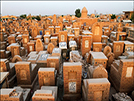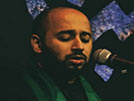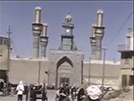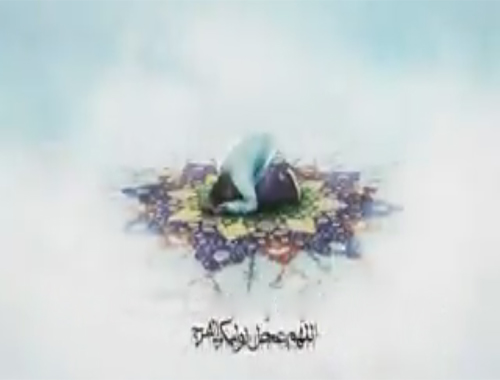verse3
- Details
- Hits: 2296
(3) حُرِّمَتْ عَلَيْكُمُ الْمَيْتَةُ وَالْدَّمُ وَلَحْمُ الْخِنْزِيرِ وَمَا أُهِلَّ لِغَيْرِ اللّهِ بِهِ وَالْمُنْخَنِقَةُ وَالْمَوْقُوذَةُ
وَالْمُتَرَدِّيَةُ وَالنَّطِيحَةُ وَمَا أَكَلَ السَّبُعُ إِلاَّ مَا ذَكَّيْتُمْ وَمَا ذُبِحَ عَلَى النُّصُبِ وَأَن تَسْتَقْسِمُواْ
بِالأَزْلاَمِ ذَلِكُمْ فِسْقٌ الْيَوْمَ يَئِسَ الَّذِينَ كَفَرُواْ مِن دِينِكُمْ فَلاَ تَخْشَوْهُمْ وَاخْشَوْنِ الْيَوْمَ أَكْمَلْتُ
لَكُمْ دِينَكُمْ وَأَتْمَمْتُ عَلَيْكُمْ نِعْمَتِي وَرَضِيتُ لَكُمُ الإِسْلاَمَ دِينًا فَمَنِ اضْطُرَّ فِي مَخْمَصَةٍ
غَيْرَ مُتَجَانِفٍ لِّإِثْمٍ فَإِنَّ اللّهَ غَفُورٌ رَّحِيمٌ
3. " Forbidden to you (for food) are carrion, blood, the flesh of swine, what has been (slaughtered) in the name of any other than that of Allah, and the beast strangled, beaten to death, killed by a fall, the gored to death by a horn, and that which same wild beast has begun to eat, (all are unlawful), except what you slaughter (in accordance with the prescribed law). And (also forbidden is to you) what has been slaughtered before idols, or that you divide by the arrows; (all) that is ungodliness. Today those who disbelieve have despaired of your religion, so do not dread them but dread Me. Today have I perfected your religion for you, and completed My favour on you, and I have chosen for you Islam as a religion. But, whoever is helplessly forced by hunger, without inclining to sin, (can enjoy of the forbidden food), then verily Allah is forgiving, Merciful."
Commentary:
At the beginning of this Sura, there was a statement which pointed out to the meat of the beast being lawful for eating, except what that would be said thereafter. This verse, in fact, is the explanation upon the same exceptions. Here, there are eleven things which have been ordained to be prohibited.
At first, it says:
" Forbidden to you (for food) are carrion, blood, the flesh of swine, what has been (slaughtered) in the name of any other than that of Allah, the beast strangled, ..."
The meat of this kind of beast is forbidden to be eaten, whether the action is done spontaneously, or by the beast, or by a person. It had been customary at the Age of Ignorance that sometimes the animal was put between two sticks or two branches of a tree, and then it was pressed thereby so much so that it died. After that the meat of such animal was consumed by them. It is also forbidden in Islam to eat the meat of the animals which are tortured, or beaten to death, or die because of a disease.
"... beaten to death, killed by a fall, the gored to death by a horn ..."
It is cited in At-Tafsir-ul-Qurtubi that it was a custom among some Arabs that, for the sake of idols, they would beat a few sorts of animals until they died, and they considered that action a kind of worship.
The verse also continues saying:
"...and that which same wild beast has begun to eat, (all are unlawful), ..."
Then, following to the prohibition of the aforementioned items, the Qur'an implies: if, before that those animals die, they can be taken and slaughtered in accordance with the Islamic laws, and sufficent blood comes out from their bodies, they will be lawful. The verse says:
"...except what you slaughter (in accordance with the prescribed law). ..."
At the Age of Ignorance, some idol worshippers had settled some pieces of stone around Ka'bah which had had no special form or shape. They called them /nusub/ and they sacrificed animals before them and pored some blood of the sacrificial animal over the idols. The only distinguished difference between these stones and idols was that idols had a special shape and face, but /nusub/ had not. In the verse under discussion, Islam has forbidden eating the meat of such animals, and says the animals which are slaughtered on the idols or before them are all forbidden for you to eat.
"...And (also forbidden is to you) what has been slaughtered before idols, ..."
It is clear, of course, that the prohibition of this kind of meal has a moral and spiritual aspect, not a bodily and material one.
Another kind of animal which the verse points out as unlawful, are those which are killed and divided in the form of lottery. The action was in this manner that: ten persons laid a bet with together and bought an animal to kill . Then they put ten arrow shafts in a bag, on seven of them was written 'gainer', while on the rest was written ' looser '. They took those shafts out of the bag as the manner of lottery one after another by the name of the ten persons. Those for whose names the seven ' gainers ' came out, had a share of meat without paying anything; but those three persons, for whose names the three 'loosers' were given, had to pay one third of the price of the animal without having a share of its meat. These arrow shafts were called /'azlam/. Islam prohibited eating such meat. It was not for the reason that the meat itself was unlawful, but for the reason that it had a form of gambling and lottery. So, it says:
"... or that you divide by the arrows; ..."
It is evident that the prohibition of gambling, and the like of it, is not allucated to the meat of animals, but when it is done on a thing, it is forbidden, because it is a place where all unexpected social harms and superstitions can be assembled.
Then, finally, in order to emphasize more on the prohibition of all these deeds, it says:
"... (all) that is ungodliness. ..."
Moderation in the Usage of Meat
From the totality of the above discussions, as well as other Islamic literature, it is understood that the style of Islam in consuming kinds of meat, like its other commandments, is a perfectly moderate style. That is, neither it is like the people of the Age of Ignorance, who consumed the meat of lizard, carron, blood, and the like of them or like many people of the West who, today, do not remanciate eating even the meat of crabs and some worms, nor it is like some Hindus, who believe that eating meat is absolutely forbidden. Thus, Islam ordains that the meat of those animals which contains pure notriment and is not hatred, to be lawful (halal), and, by giving some conditions for the usage of some kinds of meat, has rejected the styles of excess and defect.
****
Next to the statement of the above mentioned ordinances, there are also two expressive phrases mentioned in the verse under discussion. At first, it says:
"... Today those who disbelieve have despaired of your religion, so do not dread them but dread Me. ..."
Then, it continues saying:
"... Today have I perfected your religion for you, and completed My favour on you, and I have chosen for you Islam as a religion. ..."
Which day is the day of the perfection of religion? what is the purpose of ' today ' which has been repeated in the couple of above sentences?
The answer is: " The Day of Qadir-i-Khum". This fact has been cited by Shi'ite commentators in their books, in the case that many traditions referred to by the scholars of both great sects of Islam. Sunites and Shi'ites confirm it, and it completely fits with the contents of the verse. It was the day when the Prophet of Islam (p.b.u.h.) formally assigned Amir-ul-Mu'mineen Ali (a.s.) as his successor. It was on that day that Islam reached its final perfection and pagans sunk deep inside the waves of their despair. They expected Islam to be subsistent in person and, by diminishing the Prophet (p.b.u.h.), the circumstances would change to the former state, so that Islam could gradually vanish. But when they observed that a man was ellected as the successor of the Prophet and people paid allegiance to him who, next to the Prophet (p.b.u.h.), was peerless among Muslims from the point of know ledge, virtue, power, and justice, despair and hopelessness, due to the future of Islam, surrounded them, and they found that it was a fixed and permanent religion.
An interesting point, which must be paid attention to here, is that the Qur'an in Sura An-Nur, No. 24, verse 55 says:
" Allah has promised to those of you who believe and do good that He will most certainly make them rulers in the earth as He made rulers those before them, and that He will most certainly establish for them their religion which He has chosen for them and that He will certainly, after their fear, give them security in exchange; ..."
In this verse, Allah says that He will establish for them on the earth the religion which He has chosen for them. Regarding the fact that Sura An-Nur has been revealed before Sura Al-Ma'idah, and noting that the sentence " and chosen for you Islam as a religion," which has been revealed in the verse under discussion upon the mastership of Ali (a.s.), we deduce that Islam will be firmly established and grounded on the earth when it be conbined with ' mastership ', because this is the very Islam that Allah has chosen and has promised those who believe to establish it firmly on the earth. In other more clear words, Islam will be a world wide religion in the case that it be not separated from the subject of love of Ahlul-Bayt /wilayah/ (the loyalty or allegiance to the Imams).
Another matter that can be deduced from the combination of Sura An-Nur, verse 55 with the verse under discussion is that: in the former verse three promises have been given to the believers. The first is that they be made rulers in the earth. The second is security and peace for the worshippers of the Lord; and the third is the establishment of a religion that Allah has chosen.
Those three promises were actually done on the day of Qadir-i-Khum (18th Zul-Hijjah) when the verse: "... Today have I perfected your religion for you ..." was revealed, because the perfect complete example of a believing person with good deed meant Ali (a.s.), the one who was assigned as the successor of the Prophet (p.b.u.h.). It was then that with the meaning of: " Today those who disbelieve have dispaired of your religion ..." Muslims were set in a relative security and peace; and also with the meaning of '...and chosen for you Islam as religion " the chosen religion of the Lord was established among Muslims." (1)
At the end of the verse, it has returned again to the discussion of the sorts of prohibited meat and expresses the ordinance of the case of exigency. It says:
"... But, whoever is helplessly forced by hunger, without inclining to sin, (can enjoy of the forbidden food), then verily Allah is forgiving, Merciful."
Explanations:
1- The firmness of the religious school depends on a correct leadership. So, with its existence, all the infidels became hopeless at that time.
2- If the leader of the day of Qadir (and wilayah) exists in the society, Muslims must not have any fear.
3- The most important window of the hope of infidels was the departure of the Muslims' leader (p.b.u.h.). By the assignment of Amir-ul-Mu'mineen Ali (a.s.) for the leadership, that window was closed. However, the religion without having a leader is not complete.
4- The infidels, without the leader of Qadir, had many hopes and with that leader being appointed, they become hopeless. Then all infidels are one side and Ali-ibn-Abi-talib is another side.
(1) Inside the verse of prohibition sorts of forbidden meat of carrion were mentioned in order that they be protected from the perversion of opponents. Just like a person who puts his jevels inside other ordinary goods to be protected from being taken away.











